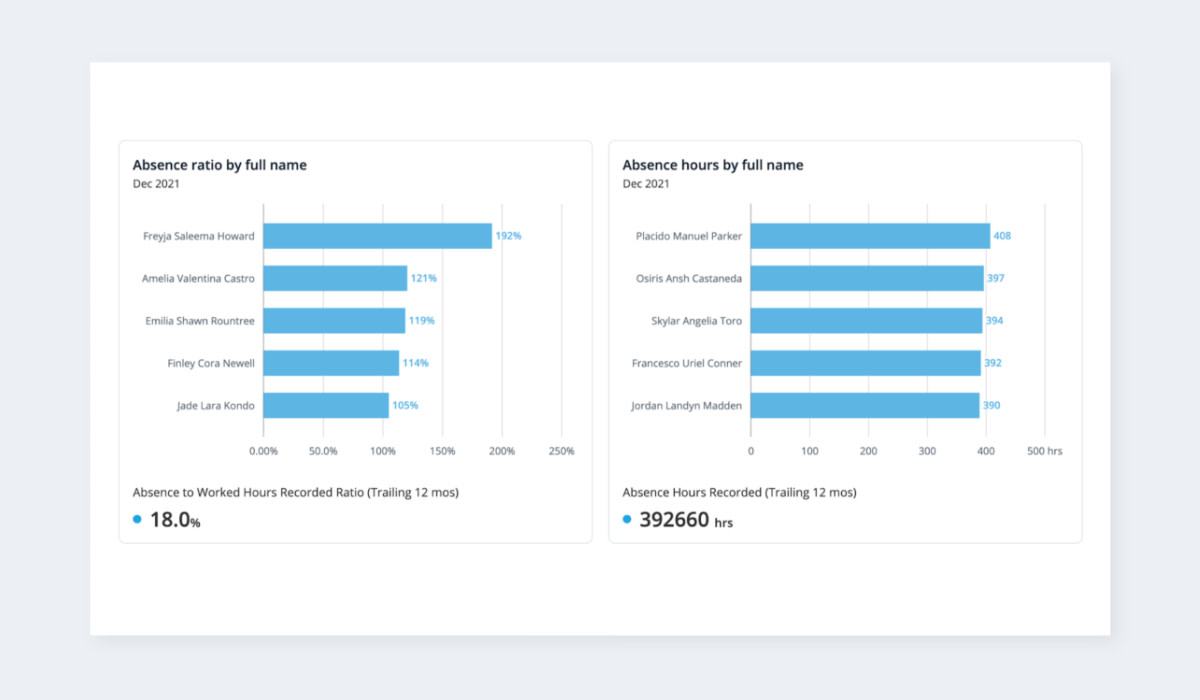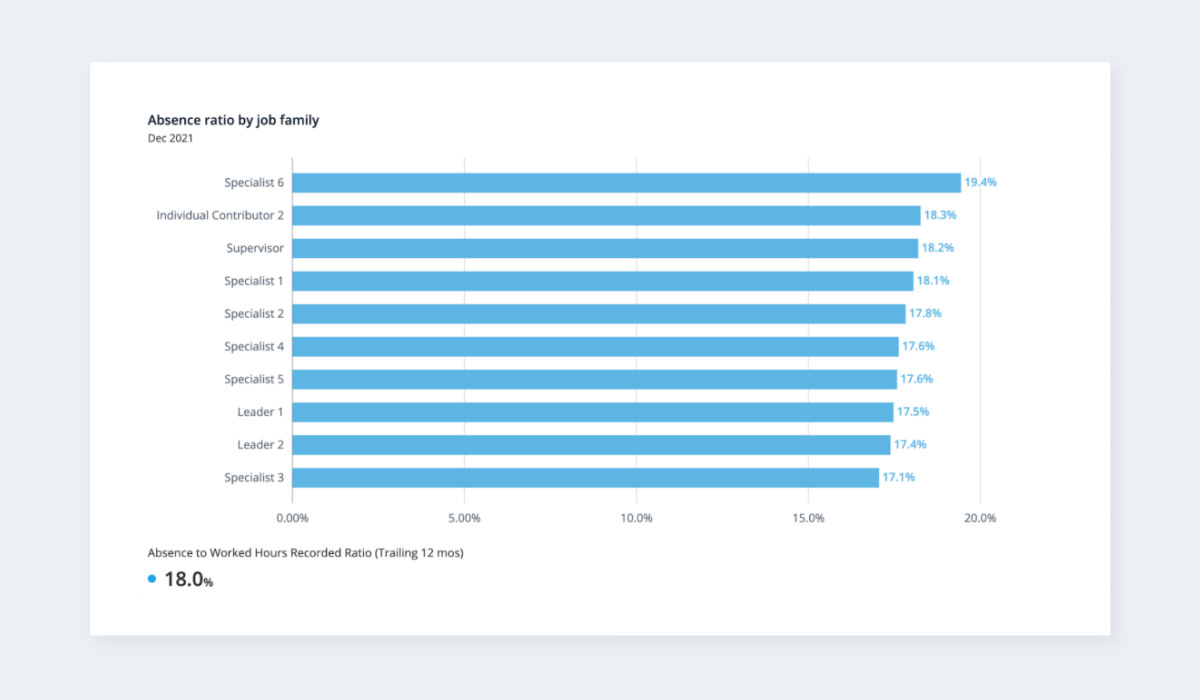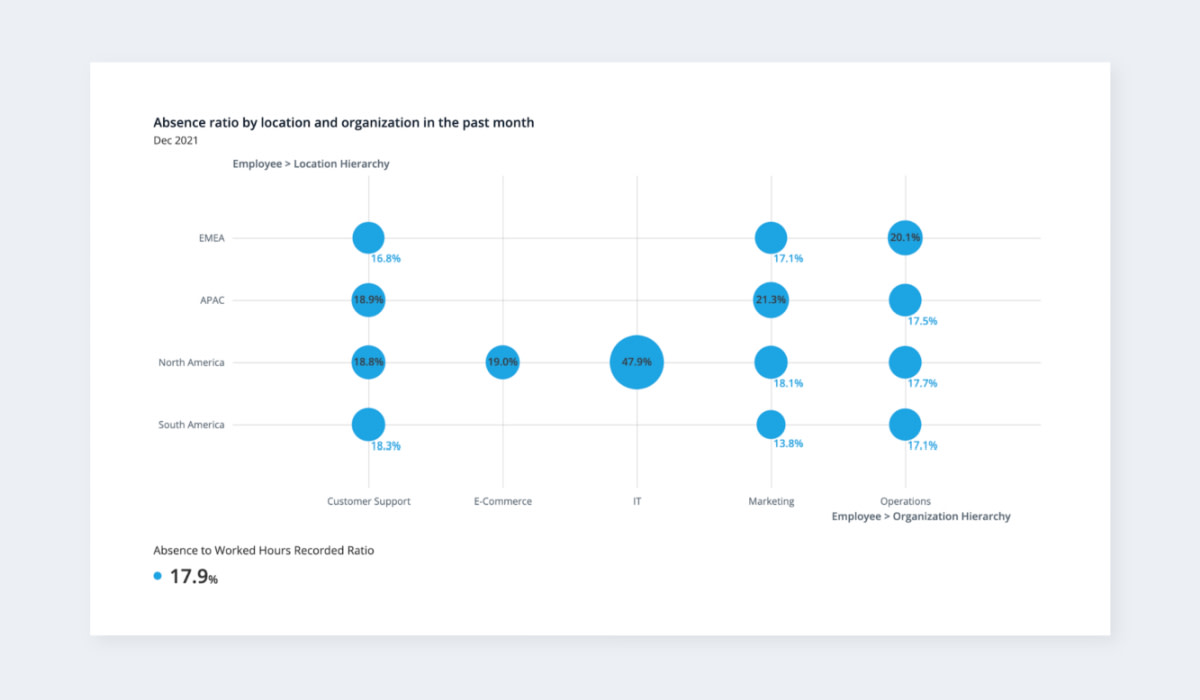Ask Visier: Which employees have high absenteeism?
High employee absenteeism poses significant challenges for organizations. Ask Visier which employees have the highest absenteeism at your org.

High employee absenteeism poses significant challenges for organizations. Unfortunately, many overlook this problem. Not all fully consider absenteeism’s cost to the organization in terms of loss of productivity, and reduced morale of employees. In addition to the impacts organizations face with absenteeism, it’s important to consider the well-being of employees and ensure they have the support they need to be successful.
Why is it important to know which employees have excessive absenteeism?
Consider the impact of absenteeism not just on the organization but also on the employee and their peers. Absence data helps HR professionals:
Understand if a problem exists, and the nature and extent of it, in order to develop and deploy proper solutions
Initiate disciplinary action or redesign work schedules if employee absenteeism results from family or personal wellness issues
Support broader analysis of team dynamics such as compliance to attendance policies
Change shift-by-shift workforce planning by job type if necessary
Absentee data can help you understand which employees have high absenteeism and identify specific departments, divisions, geographic locations, roles, or even demographic populations are experiencing high levels of absenteeism. Dive deeper with these questions:

What is the relationship between absenteeism and overtime?
Do employees work overtime to cover for teammates who are absent? High overtime can contribute to fatigue, burnout, and, ultimately, attrition.
What is the relationship between absenteeism and turnover?
Explore whether high absenteeism leads to attrition. Fatigue and burnout of teammates who are required to cover for those who are absent is a possible cause of attrition. Another possibility is that voluntary absenteeism is an indicator of cultural problems within the work unit.
Does absenteeism reduce productivity?
Investigate whether absenteeism places a drag on productivity. This can indicate a need to increase the number of people working in those roles in order to replace the absent employees and sufficiently cover the workload.
How to answer questions about employee absenteeism with people analytics—with examples
Absence reporting typically requires a lot of manual effort as time and attendance data is typically housed in a different system from other people data. Visier eliminates the manual work, reduces time and effort, and makes it easy by bringing all of the insights together so organizations can take action. Organizations can take advantage of our pre-built guidebooks which walk them through exploration of this data or can build their own narrative using our explore capabilities. Here are some examples of attendance at work broken down in visual form.
1. Which employees have the highest absenteeism this year?
Identify the employees with the most and highest frequency of absenteeism, and determine the best course of action for each individual.

Absence metrics tracked in detail.
2. Which job families have high absenteeism?
Does job role affect attendance at work? Explore the distribution of absenteeism across job families, and prioritize critical roles for further analysis and action.

Employee absence by job family shows which roles have more absences.
3. Which departments have high recent absenteeism?
Identify departments and locations with high recent absenteeism. These could be places with emerging safety, cultural, or other issues.

Visier breaks down employee absence ratios by more than one variable.

Continue reading about employee absenteeism
Discover key employee retention analytics leaders need to track when tackling turnover and building powerful retention programs.
Take a look at ten key metrics for manager effectiveness—from absenteeism to promotions rate—that will help your organization motivate talents and reduce high-performer resignation rate.
Visier's genAI assistant Vee answers strategic workforce planning questions in seconds. Here are 10 real examples of answers from Vee.


